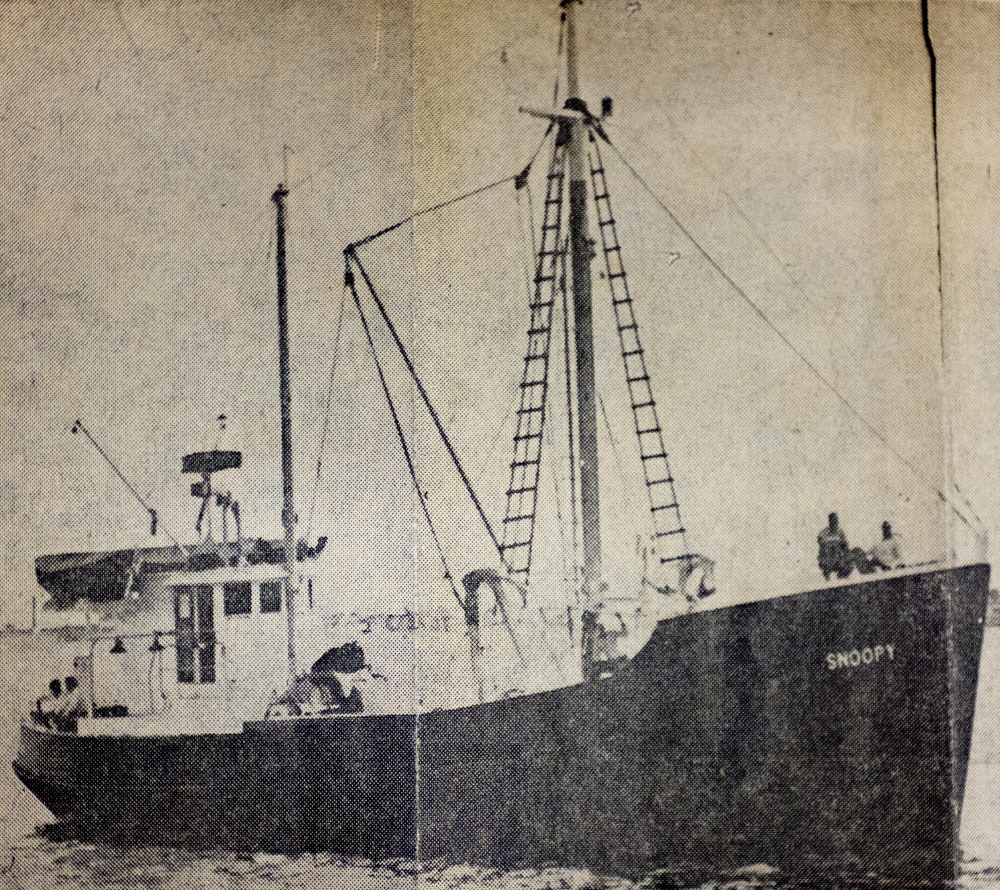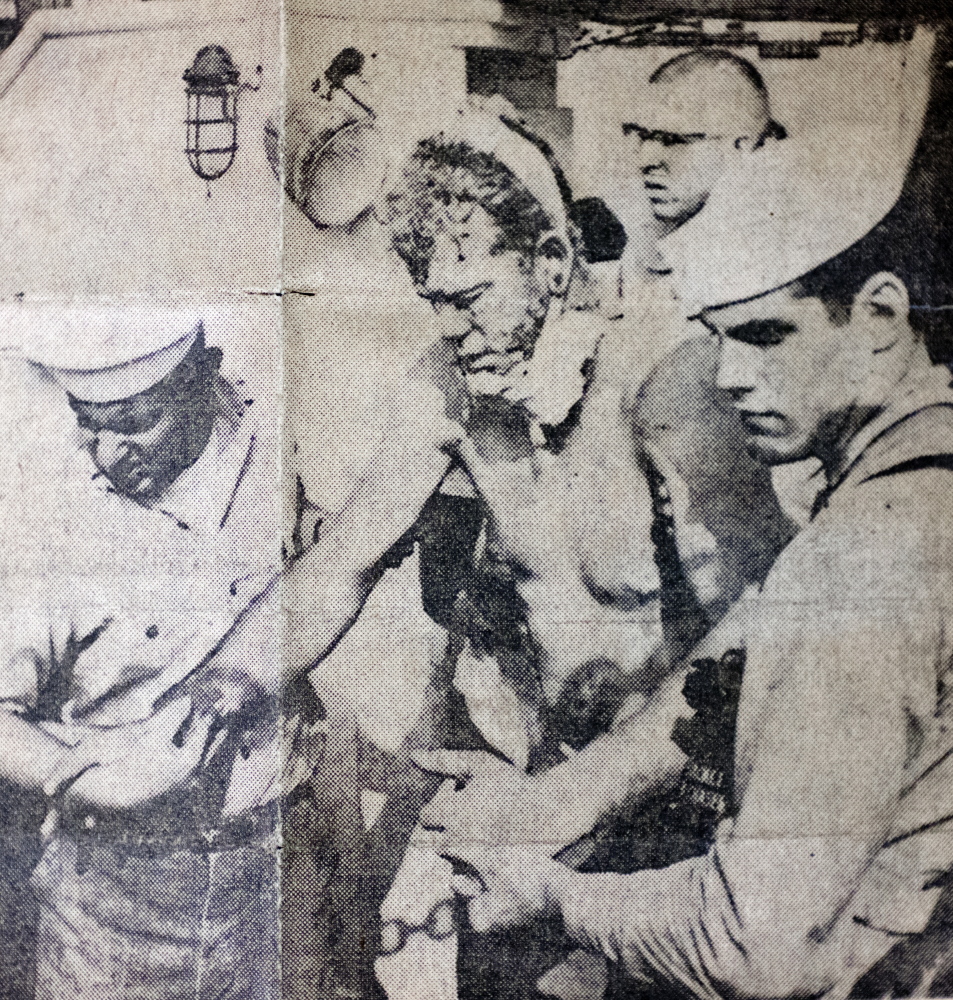A half century after the sinking of the Snoopy, George Doody still struggles to make sense of the tragedy that took his brother’s life.
He was working at a potato farm in Saco when he heard that the scallop trawler captained by his brother had been destroyed by an old World War II torpedo that had become tangled in a fishing net and exploded.
Doody’s brother Edward and seven other fishermen died while trawling off the North Carolina coast on July 23, 1965. Four crew members were rescued and survived. The fishermen on the trawler were either from Greater Portland or the Rockland-Rockport area, according to news reports. The Doodys – a well-known fishing family – were from Scarborough.
“It was just blown to smithereens,” said Doody, 82, of Saco. “The biggest parts they recovered from the Snoopy were the size of a table.”
The trawler was destroyed by a German torpedo that had been sitting on the bottom of the Atlantic Ocean for at least 20 years.
“When the air cleared, the Snoopy had disappeared and the sea was covered with debris,” Donald Williams Jr. recounted in a story he co-wrote for the Camden Herald. Williams, who declined to be interviewed, is the son of Donald Williams of Rockland, one of the eight who men died.
Williams wrote that the fishermen “could see from the deck lights what appeared to be a torpedo, caught by its propeller apparatus on the drag, and pointing straight down into the water. (It’s) doubtful whether Doody or any of the crew would have expected this to still be a danger after 20 years on the bottom; however, they still had to get it untangled from their drag.”
The Associated Press reported at the time that the Snoopy was “blown to bits” in a “freak explosion.”
News reports from the 1960s suggested that while fishermen would at times bring up World War II munitions in the years after the war, it was extremely rare for them to explode.
“Somehow, it was still a live torpedo,” said Doody, who continues to ponder the random nature of accident 50 years after it happened.
While all the fishermen were from Maine, the scallop supply had depleted off the coast of Maine in the mid-1960s, and his brother and others looked to points south for better fishing, Doody said. On the fateful trip, they trawled for scallops near the Outer Banks off North Carolina. Doody said they almost left to return to Maine the day before, but decided to stay one more day.
The Snoopy disaster, while well-covered by the media at the time and a terrible tragedy, has not become one of Maine’s more famous maritime tragedies, said Nathan Lipfert, senior curator at the Maine Maritime Museum in Bath.
“Maybe one reason is there’s no mystery involved,” Lipfert said. “We know what happened, and it was mostly an open-and-shut case.”
Doody remembers media reports being sketchy at first while authorities were piecing together what happened.
“The news just kind of trickled out,” he said.
Doody said his brother loved being a scallop fishermen, having abandoned a potential career as a banker once he got a taste of the ocean life.
“He made a couple trips with our father, made some really good money, and that was it,” Doody said. “He always used to say he would go out on the ocean, and then he was free.”
Doody said his brother, who was 35 when he died, was a devoted family man who left behind a wife and two children.
“He was a really generous person, and everyone liked him,” Doody said, recounting how his brother repeatedly gave money to an acquaintance who was injured in a work accident.
Doody said he sometimes still thinks about how his brother died at a young age and he has enjoyed a long, happy life. Doody said he worked his way up with Humpty Dumpty potato chips, eventually becoming co-owner before retiring in the 1980s. He and his wife Judy have two children, four grandchildren and two great-grandchildren.
“It does make you stop and think,” Doody said. “It was 50 years ago. He’s gone and we’re still going strong. There are a lot of people in this world who were not as good-hearted as my brother, and yet they have lived into their 80s and 90s. We’ll never know why.”
Send questions/comments to the editors.






Comments are no longer available on this story